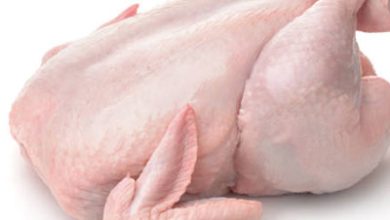The best vitamins for older small dogs: Why they are important.

For many pet people, a high-quality multivitamin is considered a form of insurance for their beloved dog. If a dog falls short on nutrients in their day-to-day diet, at least pet parents know they have the basics covered when it comes to their dog’s health.
Like people, dogs also need a complete and balanced diet, and the added vitamins, to meet all of their nutritional needs. However, the answer to that question depends on a couple of different factors on what vitamins and minerals digs may require to stay healthy, regardless of whether they just might need the extra boost in pep, or whether their overall health strictly requires it.
Do Dogs Need Vitamins?
Dogs, just like humans, also need supplemental vitamins at different stages in their lives. Vitamins support a dog’s growth and development, keep them healthy, and help older dogs age with comfort and dignity. However, a dog’s specific vitamin needs will vary and change over time depending on the dog’s age, breed type, and overall health status.
As a good dog parent, it is important to make sure dogs are taking in the proper balance of essential vitamins daily. Dogs can feel weak or fatigued if they are deficient in vitamin B12 or have a vitamin-A deficiency impairing their vision and motor skills, producing skin lesions, and even breathing problems, among other vitamin issues in dogs is having too little vitamin B1 which could cause neurological problems or heart damage over time.
Additionally, dog parents need to know that too many vitamins can also be toxic to dogs with the biggest risk of toxicities coming from over-administration of fat-soluble vitamins which could cause kidney failure in dogs.
To avoid giving dogs too many vitamins, it is important for dog owners to always consult with their veterinarian before adding any vitamins to their dog’s diet.
The best vitamins for older small dogs.
As the small dogs mature and change over time, how they are cared for also changes. Pet parents can support their dog’s changing activity, health and nutritional needs with tailored vitamins ideal for older small dogs.
When is a small dog a senior dog?
There will always be no preset age that determines when a dog should be called a senior dog, although many small dogs are already considered seniors when they age the last 25 percent of their estimated lifespan.
In general, small dog breeds tend to always live longer than large dog breeds but their genetics, daily diet, and overall care play a role in how a small dog ages. It is important to note that how a small dog behaves can also be an indicator of their senior status.
Managing the health concerns of older small dogs.
Like humans, older small dogs also have different vitamin needs and considerations compared to their younger counterparts and along with the right nutrition, daily exercise, and veterinary care, adding vitamins can help support the well-being of an older small dog.
The best vitamins for older small dogs help in their:
- Joint and mobility health.
- Gastrointestinal health.
- Protection from free radical damage.
- Avoiding skin and coat issues.
- Good organ and cognitive health.
-
Joint and mobility health.
The best vitamins for older small dogs include glucosamine, green-lipped mussel, chondroitin, and omega-3 fatty acids since these vitamins support the structure and function of the joints in older small dogs as they age.
These vitamins also aid in maintaining healthy cartilage and connective tissue as well as helping to relieve older small dogs from the occasional joint stiffness, discomfort, and even pains from daily activity.
-
Gastrointestinal health.
Older small dogs can experience sensitive or upset stomachs as they age and may let dog parents know through recurrent vomiting, diarrhea, or gas. Using probiotic vitamins for older small dogs daily or in times of stress, like if they regularly experience separation anxiety, can help maintain a healthy balance of good gut bacteria and support the proper digestion and bowel health of older small dogs.
-
Protection from free radical damage.
The best vitamins for older small dogs have antioxidants like vitamins A, C, and E plus other beneficial minerals like magnesium and zinc to help neutralize them. The best vitamins for older small dogs that feature a good dose of antioxidants can also help reduce the damaging effects of free radicals and their buildup in the bodies of older small dogs.
Free radicals can be considered as a form of rogue and reactive molecules that can directly damage the older small dog’s cells and tissues and are caused by everyday environmental stressors like pollution, poor diet, and the aging process.
-
Avoid skin and coat issues.
The best vitamins for older small dogs also have a good dose of Omega-3 fatty acids that help support good skin health and help reduce the effects of aging in older small dogs. Omega-3 fatty acids also address any dry skin and other problems from skin-related allergies in older small dogs.
-
Good organ and cognitive health.
Since aging small dogs will need assistance from their pet parents in maintaining good organ health. The best vitamins for older small dogs will include omega-3 fatty acids and the vitamins C, D, and E to help in the good overall health of their brain, heart, eye, kidney, and liver functions.
Other things to consider in caring for older small dogs.
Caring for older small dogs should not be intimidating to dog parents. In addition to providing the best vitamins for older small dogs other regular habits can also help support the quality of life of older small dogs. The best vitamins for older small dogs can help improve their digestive, joint, and organ health, however, their daily nutritional requirements should still be evaluated by their veterinarian.
The other things to consider to maintain good overall health in older small dogs are:
- Regular and controlled daily exercises.
- Maintaining mental stimulation through daily positive interactions with their owners, other dogs, toys, and exposure to their environment.
- Constant monitoring of their dental health and breath.
- Considering the use of orthopedic beds or raised feeding platforms for more comfort.
- Controlling dog parasites that can take advantage of the weakened immune system of older small dogs.
- Regular veterinary checkups for preventive care, disease management, and nutritional guidance.




